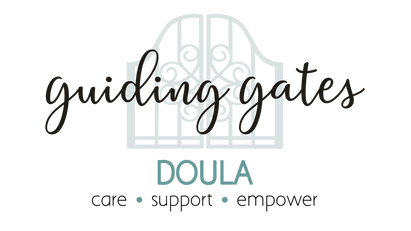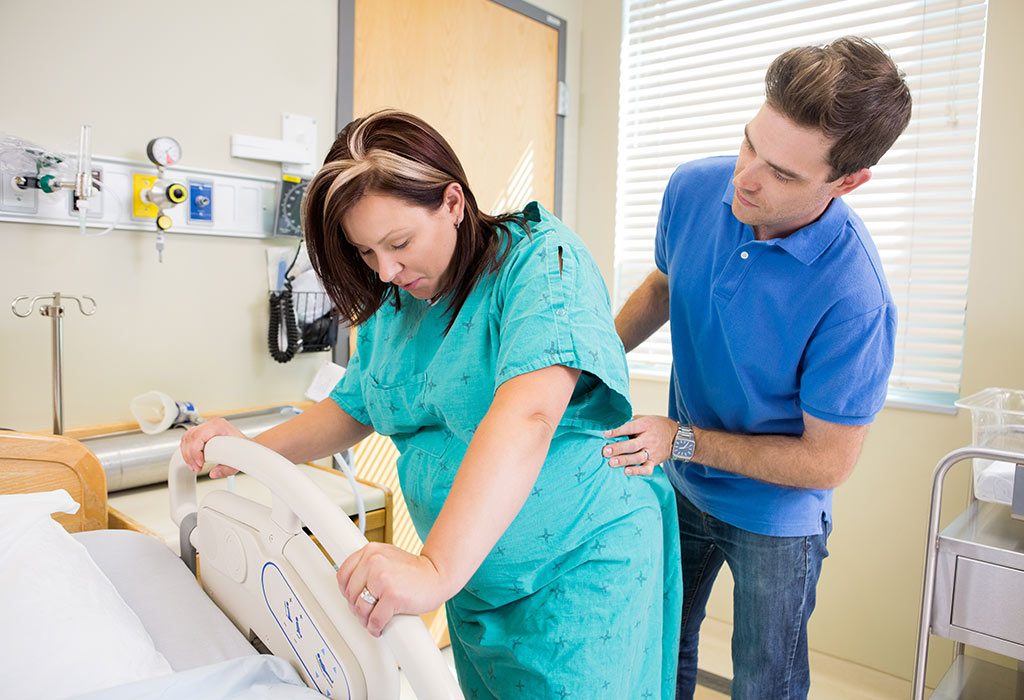|
A few weeks ago I was invited to be a guest on Julie Jacobs's wonderful podcast Goddesses Gather Here. And like the name implies, this is a podcast for amazing women to lift each other up, share their journeys, and offer advice so you too can become a goddess.
I met Julie at a meeting for military spouse entrepreneurs. I was seated quietly at the end of the table (as I had arrived late) and Julie was actively taking part in the conversation. I knew she was a force of a woman by the look of her bold red lips and when she mentioned the name of her podcast, I just knew I had to meet her! There is something so special about women recognizing, creating, and supporting other strong women. And that's what I do as a doula...I get to witness strength being born. I help women find confidence during their pregnancy so that they can have an empowered birth. Listen here to learn more about why I got into doula work, what my favorite part is, and what lies ahead for me. Happy listening, friends! On January 1, 2022, Tricare debuted their Childbirth and Breastfeeding Support Demonstration which will run until December 31, 2026. This demonstration seeks to study the impact birth doulas and lactation counselors/consultants have on the services of cost, quality of care, and maternal and fetal outcomes for the Tricare population.
In order to get reimbursed for doula services, you must: •Be at least 20 weeks pregnant upon your first prenatal visit •Be enrolled in Tricare Prime or Tricare Select •If you have Tricare Prime, obtain a referral from your PCM to see a provider for the management of your pregnancy AND for doula services •Choose prenatal care with a Tricare-authorized OB/GYN or a Certified Nurse Midwife (CNM) •Choose in-person labor support. Prenatal and postpartum visits may be in-person or virtual •Use Tricare as your primary insurance
Sometimes the amount of info out there regarding VBAC can be overwhelming, confusing, and at times plain false! It can be tricky navigating through all that noise, so I've narrowed it down for you. Read on to learn how YOU can stay informed and in control of your care.
Your provider is a key person in the success of your VBAC and it's very important to find someone who is supportive, not just tolerant. Remember that yes, no one can legally force you to have a C-section nor deny you care even if the hospital has a VBAC ban, but it's also important to know ahead of time if your hospital has the tools and staff to support a true C-section emergency. You really can't force a hospital to treat you if they don't have the means. And if your provider is suggesting a repeat C-section, don't dismiss the advice so quickly. Really talk to them about their concerns to find solutions and compromises. Sometimes having a repeat C-section is truly medically necessary and your best option. Next time you see your provider ask: •How long will you allow me to remain pregnant? Why do you prefer that date? •Will we attempt an induction? Which methods will be used? •How will I be monitored during labor? •How do you feel about me laboring as long as possible as long baby and I are doing well? •At what point during labor will a C-section be needed? Also, ask yourself:
So, you've decided on getting a doula. Now what? To give yourself a few options, interview at least three candidates and choose based on the connection, not just on the fee, experience, or reputation. A pricey doula doesn't necessarily mean she's giving you quality support. An experienced doula doesn't always mean she's right for YOUR experience. And a popular one is simply one who's talked about, but there might be another one who could be a best-kept secret. Ask the following questions to get to know the person she is, her values, work ethic, and client-doula relationship. Make sure you and your partner both get the same positive vibe and that she meets your individual priorities.
Ask the questions that are important to you. Oftentimes, potential clients just go down a list of questions they found on Google and the meet-and-greet quickly becomes a high-pressure job interview. Maybe experience doesn't matter to you or maybe meeting often isn't a deal breaker for you, so skip those questions. Stick to the topics that are suited to your needs and goals. P.S. If you decide to pass on her, be courteous and let her know. It's just the nice thing to do!
I'm a straight shooter, so I'll start by saying that there is a time and place for an epidural. Personally, I believe it's overused, rarely necessary, and not fully understood by laboring people. If the immediate and future benefits and risks are truly considered then I see no problem with the use of an epidural. My biggest issue with it is that the promise of quick pain relief overshadows the uncomfortable prep work that is needed prior to administration, the potential risks during its use, and the effects after it's been removed. That being said, there are actual circumstances in which the benefits outweigh the risks.
So, maybe you are new to this doula thing or all of your friends have gotten one for their labors and swear they couldn't have done it without the help of a doula. Now you're wondering if you should get one too. I mean, all the cool kids are doing it, right?
Even though I'd love your business, I'm not going to lie to you. Doulas aren't the only ones who can improve your birth experience. I say it all the time, surround yourself with the RIGHT people! Studies have shown that having doula support during pregnancy and labor can decrease your chances of a C-section, need for pain medication, and assisted delivery. We can also increase your overall satisfaction with your birth experience and improve breastfeeding and bonding outcomes. But how does a doula have that effect and can anyone else give you those amazing outcomes?
Let's talk perineal prep and care! Many women wonder if they will tear during a vaginal birth and if they can do anything to prevent it.
WHY DO TEARS HAPPEN? Contrary to popular belief, a baby with a larger head isn't always the cause of tears. They typically happen when the perineum doesn't have enough time to gradually stretch due to a baby who's emerging very quickly or if the skin doesn't easily stretch even with a slowly emerging head. During the pushing stage, you might have a provider tell you to slow down your urge to push if they believe the skin hasn't fully stretched. This is easier said than done, but some controlled breathing, small grunts, or laying on your side can help slow down the process. Tears may also occur if baby is malpositioned. Getting in certain positions can encourage baby to turn into an ideal position to prevent a tear. Laboring upright for too long can also apply too much pressure on your perineum. I suggest you switch positions every 30 minutes. Pushing with an Epidural means you may end up with directed pushing, where the nurse tells you when and how long to push. Directed pushing could sometimes be ineffective and exhausting because you can't properly feel the urge to push or recognize the muscles required to push. I recommend you turn down/off the Epidural at 8-9 cm. so that you can feel your pushing urges and listen to your body. It'll know how and when to push. Lastly, you're more likely to tear for your first vaginal delivery than subsequent ones. CAN TEARS BE PREVENTED? While no one can predict if you'll tear, you can definitely help yourself during labor by forgoing numbing meds such as an epidural or getting a low dose of them. If you are unable to feel your urge to push, the staff will likely direct you to push before your body is ready, before your perineum is ready. This unnecessary pressure against your perineum can increase your chances of tearing. During labor, a warm compress to the area can help relax the muscles, provide counterpressure, and help you focus on where your pushing muscles are. Studies have also shown that laboring with a midwife or at a birth center/home setting reduces your chances of tearing. Midwives are known to do fewer interventions, which can lead to tearing. Laboring in a comfortable environment such as your home leads to better outcomes due to your relaxed nature. When choosing a provider, remember that YOU are the customer and you have choices. If you're not vibing with your provider, move on and find someone who will support you. Be honest with your doctor and tell them there are a few important questions you'd like to ask. If they don't even take the time to hear you out then that's your sign to find someone else. It's best to know early on if they're a good match for your labor experience. Keep in mind that there is no labor police and you have total autonomy over your body and baby's. Provider preference/recommendation is not law and you have the right to choose what feels right to you, even if it's outside of the norm. If you truly have no say about which provider you get and you're not quite comfortable with them, consider switching to a midwife, a home birth, laboring as long as possible at home, or having a rockstar support partner with you at the hospital. QUESTIONS TO CONSIDER WHEN CHOOSING A PROVIDER: -Do you support unmedicated births and what are your views on them? -How do you support medicated births and what are your views on them? -Do you support breech births, how? -Who are your backups and will I meet them? -How do you feel about doulas? -How do you feel about birth plans? -What are your induction and C-section rates? -Do you support a VBAC and how do you ensure it'll be as successful as possible? -How do you view pain during labor? -What is your plan if I go past my due date? -How many hours will you allow me to labor after my water breaks? -How long will you allow the umbilical cord to remain attached? -Will you administer Pitocin to deliver the placenta? Remember that if you choose an OB you will likely only labor with them for a short while, as they tend to cover multiple births at a time. Still, knowing ahead of time how they can support you during the expected and unexpected can help you decide who better aligns with your wishes. For an even better experience, choose your hospital wisely and get support from a doula, or make sure you and your birth partner are well-educated and able to make decisions during complex situations. Choosing your hospital is just as important as choosing a provider. You will likely labor with the staff much longer than you will with your provider so be sure they can meet your needs.
Call the Labor and Delivery Department, take a tour, or visit their website to find the answers. QUESTIONS TO CONSIDER WHEN CHOOSING A HOSPITAL -What kind of pain medication do you offer? -What laboring tools do you provide (birth ball, stool, tub, etc.)? -When are vaginal exams performed and are they required? -How is baby's progress monitored? -Am I allowed to eat, drink, and move freely? -What are your C-section and induction rates? -How do you support complicated births? -Do you support breech births, multiples, and VBACs? -What procedures do you follow immediately after birth for mom and baby? When do they begin? Are any of these optional? -What security measures do you have in place? -What do you provide during my stay? -How are you prepared for emergency situations? -Do you have a NICU? These are all excellent questions to get a conversation started, but remember that your birth education and support system have an even greater impact on your experience than where you deliver.
Not one book could ever truly prepare me for breastfeeding. Yes, I had understood the physiology behind it and knew of the benefits, but the actual feeling and experience could never be accurately described in the books. And it wasn't just the feel of a small mouth on my nipple that was never explained, it was the emotional toll it would take.
Thirteen years ago, I was the first in my family to breastfeed, so I wasn't able to get any insight and words of wisdom from my sisters or mother. It was somehow easier for me to envision being a first-time mom than it was to have a baby latched at my breast. That first feeding in the hospital was so awkward. How could something so natural feel so unnatural? I thought that first latch would be the end of the uncomfortableness of nursing, but so many more challenges faced me. |
Archives
February 2024
Categories
All
|
|
Guiding Gates Doula LLC
|
(719) 428-6929
|
Hampton • Norfolk • Williamsburg • Yorktown • Newport News • Smithfield










 RSS Feed
RSS Feed